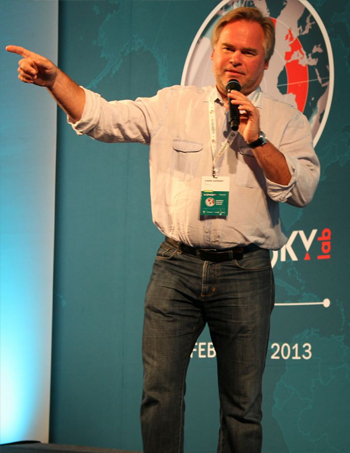There seems to be quite a loud response to what I thought was a rather simple idea. In this post, I am going to go over the main points – somewhere when I have more time I’ll share my ideas in detail so people could see exactly what I am proposing.
- Common users are NOT anonymous for police and governments. Today the authorities can find any person they are after easily. There is a wrong perception about Internet anonymity – very few people realize that it does not exist for ordinary users. But the worst part of the story is that the ones who are truly anonymous are professional cyber criminals, because they know what to do to hide their real identities in the Internet. That is why we have millions of malicious programs and successful network attacks every year, and we don’t know who’s behind them.
- When I say “no anonymity” I mean only “no anonymity for security control.” I don’t care about the way people behave on blogs, forums, social networks and pirate torrent portals. You may use nicks or real names as you want (as we do today). The only “no more anonymity” improvement – you MUST present your ID to your Internet provider when you are connecting online. It is only the provider who needs to know your real identity.
- Another way to go is dedicated anonymous networks and dedicated business/government networks – why not? But all LEGAL businesses/services will want to use secure networks, and unsecure networks will be probably limited to casual communication.
- When is it going to happen? Never… or in one-two generations. After some really serious IT incidents, which will have a serious impact on national and/or global economies. I am now talking not only about cybercrime, but also about cyberterrorist attacks. We already see the first signs of emerging cyberterrorism – and global anonymity is a really favorable factor for these people.Imagine that everyone flying in your plane is anonymous, so you don’t know who they are and what they’re up to – are you really going to approve of this? And the Internet is as critical and as vulnerable as the air transportation network. So why do we have different security standards
for these two global networks? - But we are already on the way – some European countries have introduced digital IDs, which they use for secure online banking and in some cases for online voting. National and municipal elections via the Internet are not a matter of science fiction – they are already here, and ID authentication is a vital part of such election systems.Another prototype of e-passports is the two-factor authentication we now use to access corporate networks. The only thing that is missing today is a common standard.
Anyway, I am happy to see that my ideas have raised so much discussion; I think that open public discourse and idea-sharing is the only way to make the Internet a safer and a better place.
Eugene Kaspersky is the founder and CEO of Kaspersky Lab, Threatpost’s corporate sponsor.










